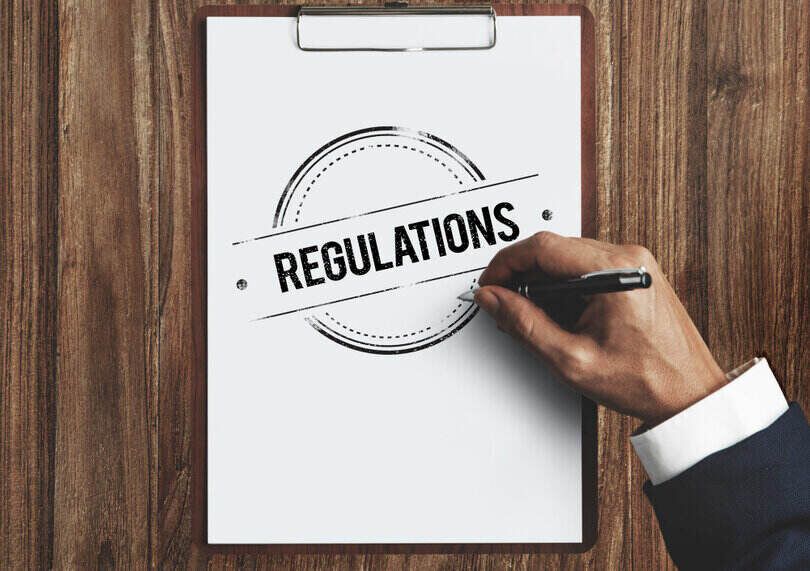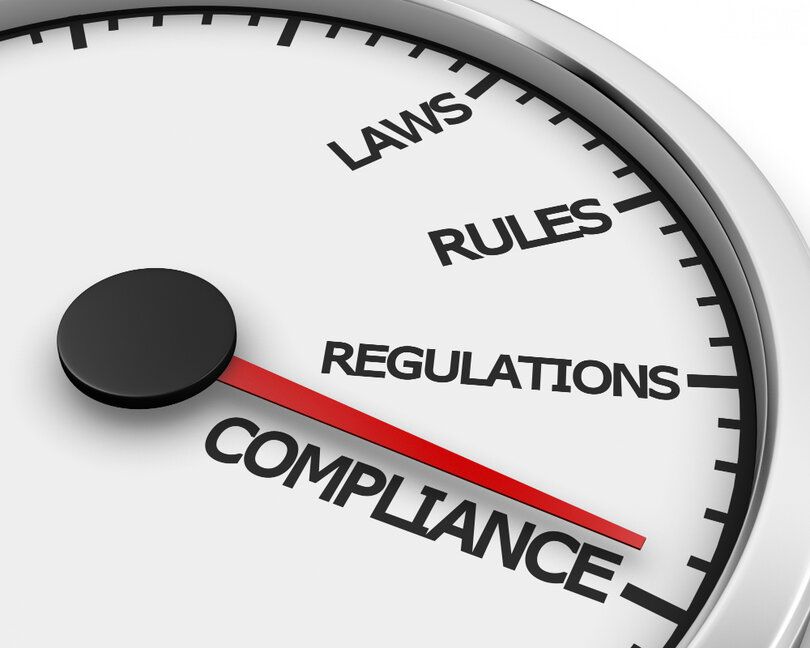Waste Disposal Regulations In The United States
November 11, 2022
As a business owner, it's important to stay up-to-date on all the latest regulations, especially when it comes to waste disposal. After all, there are hefty fines for non-compliance!
In this blog post, we'll give you a crash course on waste disposal regulations in the United States. We'll cover everything from what these regulations entail to how they've changed over the years. By the end of this post, you should have a good understanding of the ins and outs of waste disposal regulations.
What Are The Waste Disposal Regulations In The US?

The waste disposal regulations in the United States are governed by the Environmental Protection Agency (EPA). These regulations dictate how citizens and businesses must dispose of their waste. Failure to comply with the regulations enforced can result in huge fines and other penalties for non-compliant companies.
There are two main types of commercial waste regulated by the EPA: hazardous and non-hazardous. Hazardous waste is defined as ‘waste that is dangerous or potentially harmful to human health or the environment.’ Non-hazardous waste is everything else.
The Resource Conservation and Recovery Act (RCRA) is the main federal law governing solid and hazardous waste disposal in the United States. The RCRA provides guidelines for the proper management of waste from generation to disposal. It also establishes requirements for waste treatment, storage, and disposal facilities.
Under the RCRA, businesses are responsible for ensuring that their commercial wastes are properly managed. This includes ensuring that wastes are properly labeled and transported to authorized waste facilities for disposal. Businesses that generate solid and hazardous wastes must also keep records of their waste activities and make these records available to EPA inspectors upon request.
In addition to the RCRA, there are a number of other federal laws that govern different aspects of waste disposal in the US. For example, the Comprehensive Environmental Response, Compensation, and Liability Act (CERCLA) establishes liability for parties who dispose of hazardous substances illegally. The CERCLA also created the Superfund program, which provides funding for cleanup activities at hazardous waste sites.
The Hazardous Materials Transportation Act (HMTA) regulates the transportation of hazardous materials, including wastes. The HMTA requires businesses that ship hazardous materials to properly label their shipments and provide training to their employees on proper handling procedures.
At the state level, there are a number of additional laws and regulations governing waste disposal. Some states have adopted programs that are more stringent than the federal requirements while others have chosen to focus on different aspects of solid waste management altogether. For example, California has a comprehensive approach to managing solid waste that includes recycling requirements, landfill bans, and mandatory reporting by businesses.
How Have These Regulations Changed Over The Years?
The EPA's waste disposal regulations have changed quite a bit over the years. In 1976, Congress passed the Resource Conservation and Recovery Act (RCRA) which gave the EPA authority to regulate hazardous waste disposal. Then, in 1980, Congress amended RCRA to include regulation of nonhazardous industrial solid waste. Finally, in 1984, Congress passed the Hazardous and Solid Waste Amendments (HSWA) which placed additional requirements on hazardous waste disposal.
These amendments have made it much more difficult for businesses to dispose of their waste properly. For example, businesses must now obtain a permit from the EPA before they can dispose of any hazardous waste. Furthermore, they must follow strict guidelines when transporting and storing this type of waste. Finally, they are required to keep track of all their hazardous waste all the time.
Why Are These Regulations Necessary?
The EPA's regulations are necessary in order to protect human health and the environment from harm. Hazardous wastes like medical waste can contain toxic chemicals and substances that can contaminate our water supply, damage our soil, and pollute our air. Furthermore, improper storage and transportation of these wastes can lead to accidents that can cause harm to people and wildlife. That's why it's so important for businesses to follow the EPA's regulations to ensure that their hazardous wastes are properly disposed of.
How Do Different States Approach Waste Disposal Differently?

While the EPA sets general guidelines for hazardous waste disposal, each state is responsible for implementing its own specific laws and regulations. For example, some states may require businesses to obtain a permit before disposing of any hazardous waste while others may not. Additionally, some states may place stricter limits on what types of hazardous wastes can be disposed of while others may be more lenient.
For instance, some states, like California, have very strict waste disposal regulations. Others, like Texas, have much laxer laws. And still, others fall somewhere in the middle.
How did these differences come about? Well, it has to do with the way each state approaches waste disposal. For example, California has a "zero waste" goal, which means that the state is working on its waste reduction plans to minimize the amount of trash that goes into landfills. To achieve this goal, California has put in place a number of strict regulations around waste disposal.
Texas, on the other hand, takes a more laid-back approach to waste disposal. The state doesn't have any statewide regulations around waste disposal. Instead, each city or county can decide what waste disposal regulations, if any, to put in place.
This difference in approach has led to some stark differences in the way waste is managed from state to state. California has a much higher recycling rate than Texas, for example. But Texas also has a much higher landfill waste disposal rate.
So, what does this all mean for businesses? Well, it means that you need to be aware of the waste disposal regulations in your state. Depending on where your business is located, you may be subject to different rules and regulations.
It's always a good idea to err on the side of caution and assume that stricter regulations apply to you. That way, you can avoid any potential fines or penalties for non-compliance.
Challenges Businesses Face When Complying With Waste Disposal Regulations

Let's take a closer look at each of the challenges that businesses face when dealing with regulations:
1. Regulations are constantly changing
One of the biggest challenges businesses face when it comes to waste disposal regulations is that these regulations are constantly changing. This can make it difficult for businesses to keep up and ensure they are in compliance. For example, in 2015, the Environmental Protection Agency (EPA) issued a new rule that required businesses to track their waste disposal and report it to the agency. This was a major change from the previous regulations, which did not require businesses to track or report their waste disposal.
2. There are a variety of different regulations
Another challenge businesses face is that there are a variety of different waste disposal regulations they must comply with, depending on the type of waste they're disposing of. For example, there are different regulations for hazardous waste than there are for solid waste. Additionally, the regulations can vary depending on the state in which a business is located. This can make it difficult for businesses to keep track of all the different regulations and ensure they are in compliance.
Complying with all the different federal, state, and local laws and regulations surrounding hazardous waste disposal can be daunting for businesses. Furthermore, keeping track of all this information can be time-consuming and expensive. If a business fails to comply with these laws and regulations, it can face stiff penalties including hefty fines, revocation of business permits, and even jail time.
3. The cost of compliance
Complying with waste disposal regulations can be costly. Businesses may need to invest in new equipment or make changes to their facilities. They may also need to hire additional staff to comply with the regulations. All of these costs can add up, and they can be a burden for small businesses.
4. Failure to comply can result in hefty fines
Finally, businesses face the risk of hefty fines if they fail to comply with waste disposal regulations. For example, the EPA can impose fines of up to $50,000 per day for businesses that violate hazardous waste regulations. These fines can add up quickly and put a strain on a business's finances.
Waste disposal regulations can be challenging for businesses to comply with, but it's important to stay up-to-date on the latest changes and make sure you are in compliance. Fines for non-compliance can be costly, so it's best to avoid them if possible.
Haulla - Helping You Comply With Waste Disposal Regulations
Waste disposal laws and regulations in the United States can be complex and confusing, but it's important for business owners to familiarize themselves with the rules for compliance. These laws are necessary to prevent harm to people’s health and safety.
When you need to comply with waste disposal regulations, you’ll want to get the right hauler to pick up your commercial waste. Haulla can help your business to make sure you stay compliant with local regulations. Plus, with our smart garbage collection system, you can save more on your waste collection plans while contributing to lower carbon emissions.
Are you ready for cheaper, compliant, and sustainable waste collections? We offer the most competitive prices on waste solutions in major cities in the United States. Contact us today!
